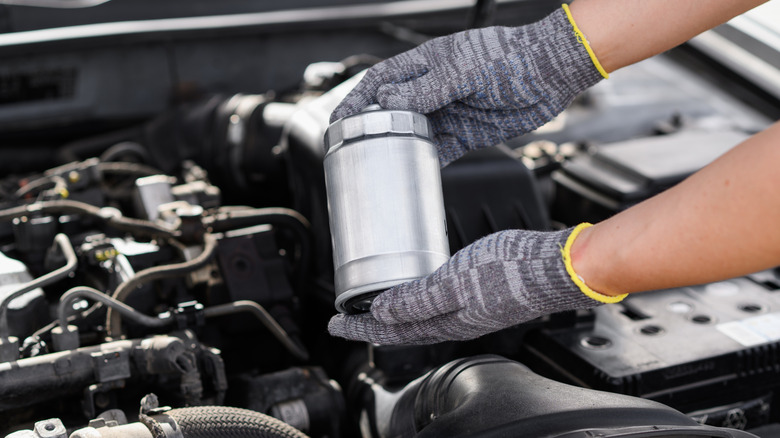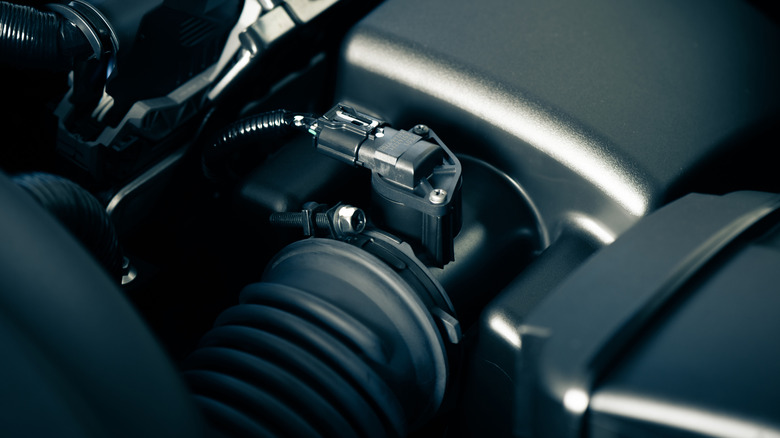
Ddiesel engines have their benefits, it's just that quick acceleration isn't one of them. They're limited in rpm compared to gas engines, due to factors like their higher compression ratios, and that limits
diesel horsepower, too. Sure, Audi managed to make the best of things with Le Mans-winning diesel racecars, but it's been over 10 years since Audi's last victory and, generally speaking, diesel vehicles are slower than their gas-engined counterparts.
If your daily diesel driver is suddenly less responsive, however, delivering less power no matter how hard you push that accelerator, you may have a problem. The good news? We may have the solution.
There are a few common causes for a diesel engine feeling sluggish under load, and many can be simple to fix. In fact, it can be as easy as changing a filter. Even better, a lot of these issues can be prevented in the first place by following proper guidelines for routine maintenance. Tha's vital to the health of any engine, of course, and especially important if you're counting on your diesel vehicle to do diesel things. Towing and hauling heavy loads puts extra stress on the motor that can require a little extra attention to proper operating procedures.
Read more: Call Me A Luddite, But These Modern Features Only Seem To Make Cars Worse
Blocked Filters Are Big Concerns

While it almost goes without saying, we're going to say it anyway: A diesel engine won't run without fuel and air. It's the burning fuel that provides the power and the air — oxygen, specifically — is required for the fuel to burn. So if you notice your diesel engine is slow to respond and doesn't pull like it used to, it could be that your fuel or air filter is clogged, which would prevent enough of one or both from getting to the engine.
Something like oil in your engine air filter could indicate something serious, but either filter can become too dirty for use just through normal driving. Which is why it's vital to replace them at manufacturer-recommended intervals.
In addition, a bad fuel filter can end up affecting the fuel pump since it has to work harder than usual to get the fuel past the filter. That can exacerbate any performance problems, although you can usually tell your fuel pump is contributing to the issue: You can hear it complaining with a high-pitched whining noise coming from near your fuel tank.
Diesel owners also have a unique filter to worry about, the diesel particulate filter (DPF). Designed to help eliminate harmful particulate emissions, these are long-lasting ceramic filters that pretty much clean themselves through a process known as regeneration. We've talked about how DPF regens work before, and as mentioned, a problem with the process or the filter is another performance-killer.
Getting Fuel And Air In, Getting Exhaust Out

Beyond making sure your diesel engine gets enough air and fuel, you need to make sure it gets the exact right amount of both. The engine control unit (ECU) typically handles that, but it makes its decisions with the help of two key sensors. The mass airflow sensor measures the amount of air coming into the engine, and the oxygen sensor analyzes the composition of the exhaust gas. The ECU combines those data to adjust the fuel-air mixture with the fuel injectors, which literally inject the fuel into the motor's cylinders.
After combustion, diesel exhaust also has to be treated to reduce emissions, opening up further potential pain points for performance. The selective catalyst reduction and diesel oxidation catalyst systems are among the most prominent, and the former requires routine fill-ups with AdBlue Fluid, like all diesel vehicles, while the latter is like a catalytic converter on a regular gas car.
A crash or old age can lead to a sudden failure of any of these systems, but following your owner's manual can go a long way to keep your diesel engine running smoothly for years. The moral of the story: To prevent sluggish diesel performance, don't be sluggish about doing routine maintenance.
Want more like this? Join the Jalopnik newsletter to get the latest auto news sent straight to your inbox...
Read the original article on Jalopnik.










